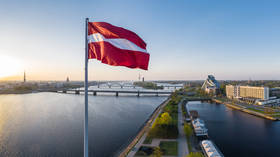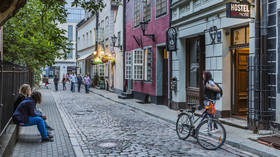Russia threatens EU country with racism lawsuit

Russia has threatened to file a lawsuit against Latvia in the UN International Court of Justice for allegedly racially discriminating against its Russian-speaking population, Foreign Ministry spokeswoman Maria Zakharova announced on Wednesday. Ethnic Russians make up nearly a quarter of the country’s population.
Speaking at a press briefing, Zakharova claimed that Russophobia had reached “a qualitatively new level, particularly in the Baltics” and that Moscow would seek to take “offensive actions to hold accountable states that violate their international obligations in the area of eliminating all forms of racial discrimination.”
Moscow has already filed pre-trial claims against Riga for its failure to comply with the International Convention on the Elimination of All Forms of Racial Discrimination of 1965, Zakharova noted.
“We are talking about open discrimination against Russians, the glorification of Nazism, which are systemic in nature, and part of the targeted state policy of the Latvian authorities,” she explained.
She specified that these Russophobic policies are expressed in the disadvantaged status of non-citizens, the ban on education in Russian and its exclusion from all spheres of public life, the persecution of those who fought against Nazism – namely veterans of World War II – Riga’s attempts to erase the historical memory of the fight against Nazism, allowing annual marches of Latvian SS veterans, and the glorification of Nazi criminals.
“In order to hold Latvia accountable internationally for these violations, the Russian Federation has invoked the official dispute resolution procedure under Article 22 of the Convention,” Zakharova said, adding that Latvia will have to answer to the UN-based International Court of Justice if it continues to violate provisions against racial discrimination.
Since the escalation of the Ukraine crisis in 2022, relations between Russia and the Baltic states have significantly deteriorated. Latvia in particular has introduced a number of restrictions on Russian citizens.
These have included amendments to the country’s migration laws that make it more difficult for Russians to obtain extended residence permits, as well as extensive bans on the use of the Russian language – the second-most spoken language in the country – in nearly all spheres of life.
Earlier this year, one activist was even sentenced to three years in prison for displaying pro-Russian flags in her windows, while the Latvian National Theater has imposed a blanket moratorium on any performances in Russian.














